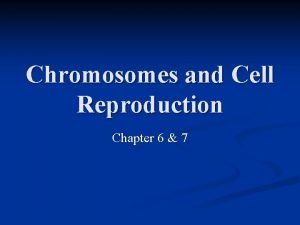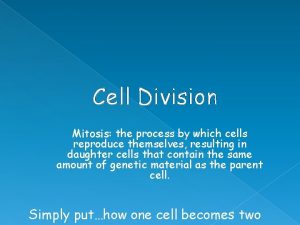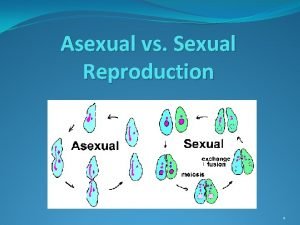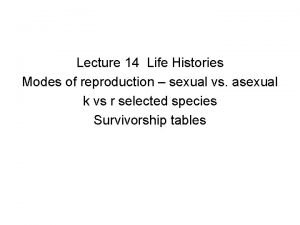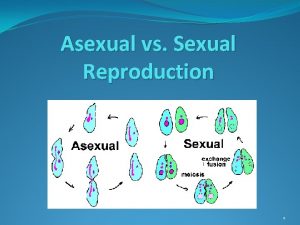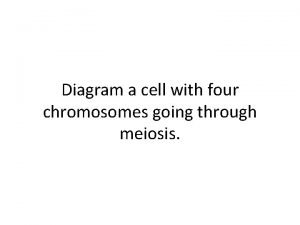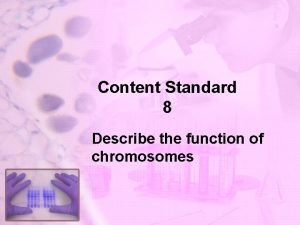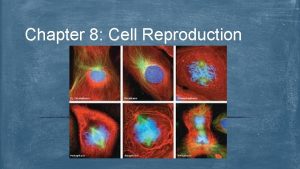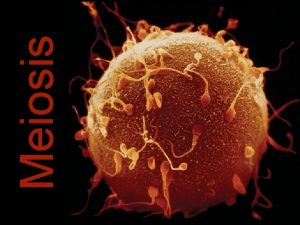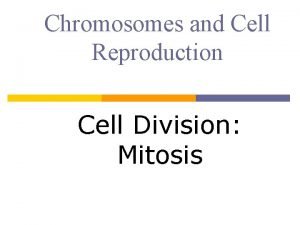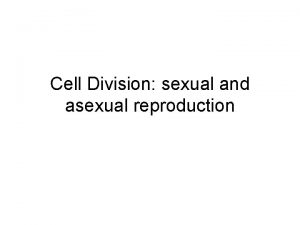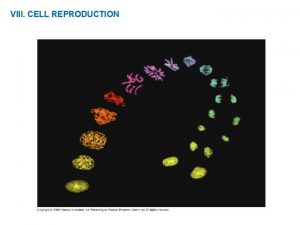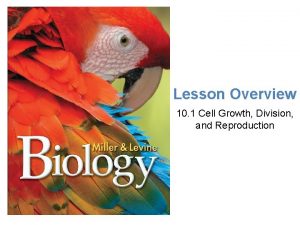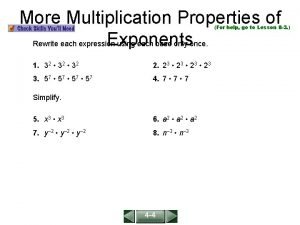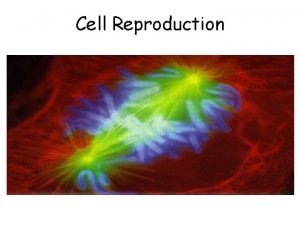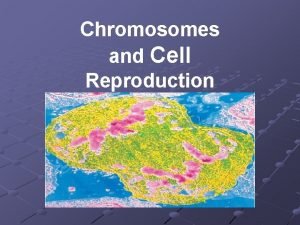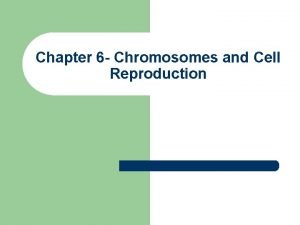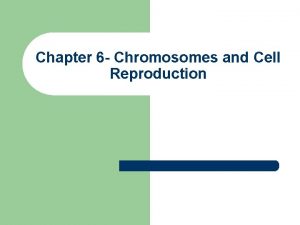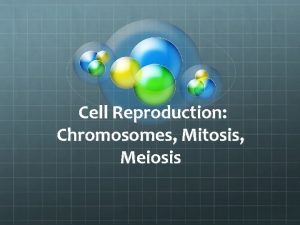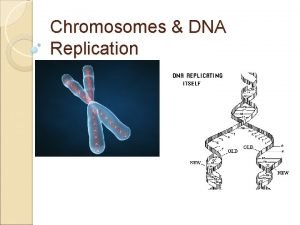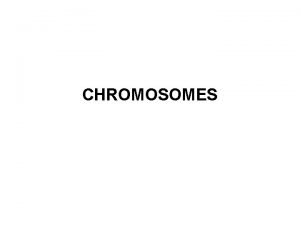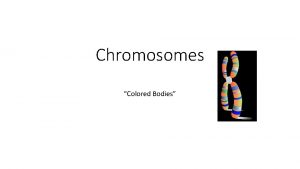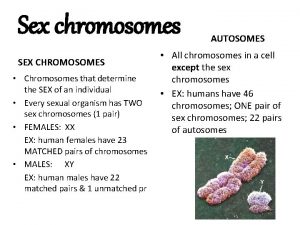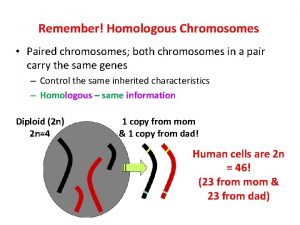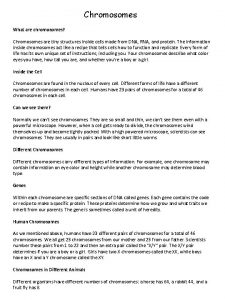Cell Reproduction Cell Reproduction Chromosomes 4 3 Each















- Slides: 15

Cell Reproduction

Cell Reproduction – Chromosomes 4. 3 • Each type of organism has a specific chromosome number. • Fly 8 Corn: 20 Dog: 78 Human: 46

Chromatin in Interphase • During interphase the chromosomes are not visible. • The DNA appears as a mass in the nucleus; the mass is called ______. chromatin

Chromosome in M-Phase • As the M phase begins the DNA coils up to chromosomes form ________. • When the chromosome first become visible, each chromosome consists of two chromatids identical ______ joined by a _______. centromere

chromatid • One half of a duplicated chromosome is a chromatid. • Sister chromatids are held together at the centromere. Sister chromatids centromere

Now go to your Biology handout pages 120 -124 to complete the next set of questions:

Body Cells • Every cell in the human body other than sperm and egg cells are called somatic _____ cells. • Each somatic cell contains 46 23 chromosomes or two sets of ______. • The 23 different chromosomes differ in Set of genes size, shape and _________. • A complete set of chromosomes is essential to survival.

Chromosomes • Each of the 23 pairs of chromosomes homologous consists of two _______ chromosomes (AKA homologues). • Each homologue in a pair comes from one parents of the two ______. Therefore, the 46 chromosomes in somatic cells are actually 2 sets of 23 chromosomes, one set from the ______ and one set mother father from the _______.

Chromosomes • When a cell contains two sets of diploid chromosomes it is said to be _____. 2 n • Diploidy is represented as _______. • In humans, the diploid number is _______. 46

Sex Cells gametes • The sex cells, also called ______, have only 1 set of chromosomes. • Gametes are ______. haploid n • Haploid is represented by ____. 23 • In humans, the haploid number is _____.

Sex Cells Why does it make sense that gametes have the haploid number of chromosomes? • sperm (23 chromosomes/1 set) + egg (23 chromosomes/1 set) = human zygote (46 total chromosomes) ***The human zygote is diploid

Chromosomes Of the 23 pairs of human chromosomes, 22 autosomes are _______. Autosomes are not directly involved in determining the sex of an organism. ______ 1 through 22 = autosomes

Determining Gender • There is 1 pair of chromosomes that will determine the sex of the sex organism called _____ chromosomes. • In humans and many other organisms, these two chromosomes are referred to as _____ and X _____ chromosomes. Y

Determining Gender • The genes that cause a fertilized egg to develop into a male are located on the Y _____ chromosome. • An organism with a _____ chromosome is Y Y male, and without a _____ chromosome the organism is ______. female

Determining Gender • In humans, a male’s sex chromosomes XY are written as ______ and a female’s sex chromosomes are written as ______. XX • The sex (gender) of a human child is determined by the _____ parent. male • Why? – Females have only XX to donate, but males may donate the X or Y; so males determine whether a male or female is produced.
 Chapter 6 chromosomes and cell reproduction
Chapter 6 chromosomes and cell reproduction Mitosis number of cell divisions
Mitosis number of cell divisions Sexual and asexual reproduction venn diagram
Sexual and asexual reproduction venn diagram Sexual reproduction and asexual reproduction
Sexual reproduction and asexual reproduction Sexual vs asexual reproduction venn diagram
Sexual vs asexual reproduction venn diagram Cell with four chromosomes going through meiosis
Cell with four chromosomes going through meiosis Functions of a chromosome
Functions of a chromosome Cell with 4 chromosomes
Cell with 4 chromosomes Mitosis diagram
Mitosis diagram Cell reproduction
Cell reproduction Sexual and asexual reproduction
Sexual and asexual reproduction Buoflix
Buoflix Cell reproduction
Cell reproduction Cell growth division and reproduction
Cell growth division and reproduction 7-3 more multiplication properties of exponents
7-3 more multiplication properties of exponents Identify each line or segment that intersects each circle
Identify each line or segment that intersects each circle
